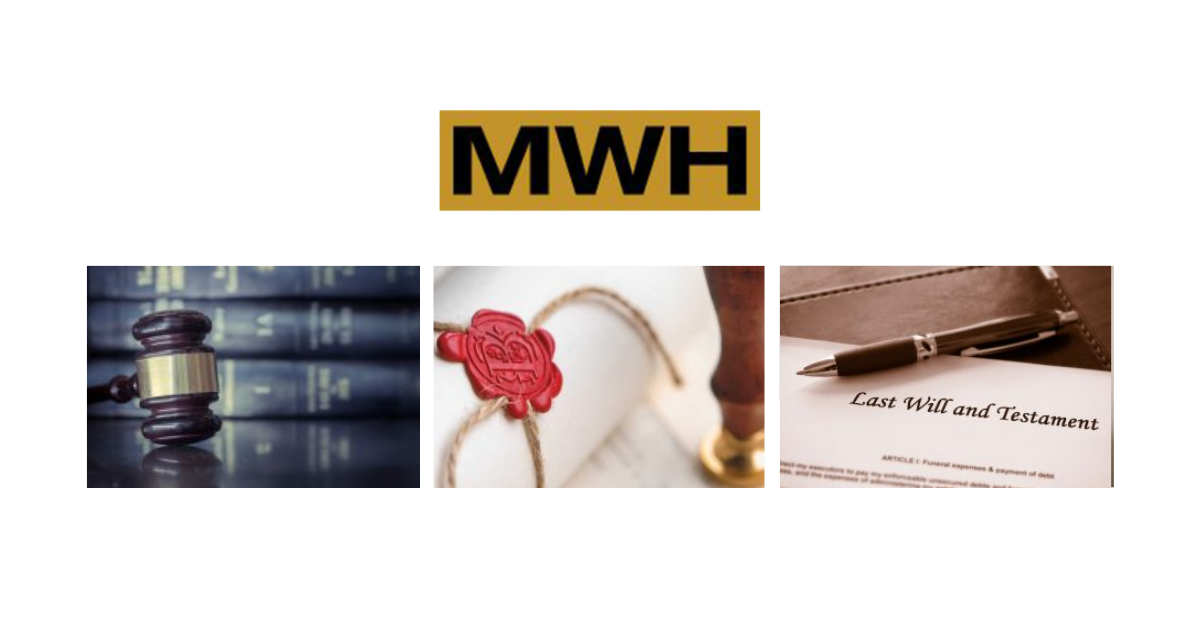Top Ten Reasons Why People Do Not Have Estate Plans (And Why They Are Wrong)
-
They Don’t Want to Talk About Their Death.
Many people understandably do not like talking about their own immortality, let alone their preferences with respect to burial, cremation, and organ donation. Sensitive topics can be very difficult to discuss for some, and not so difficult for others. However, difficult topics such as end of life decisions are best addressed by these people themselves. Difficult decisions should not be delegated to family members or friends who may or may not know the persons true wishes or concerns about their end of life decisions. Having a comprehensive estate plan and legally binding documents unambiguously demonstrates a person’s true intent, wishes and concerns about these difficult decisions. An estate plan will spare your family from making difficult end of life decisions that may or may not be your true intent. So not talking about and having an estate plan in place to address your death is a recipe for disaster.
-
They Are Not Old Enough.
Another reason people do not have an estate plan is because they feel that they are not “old enough” to have an estate plan. I tell these people that they are wrong because once a person is 18 and legally an adult, he or she should have some form of an estate plan in place in the event of their incompetence or untimely death. I have seen and heard of many 18 year old involved in accidents where the hospital cannot disclose medical information to his or her parents. An individual can suffer from a sudden heart attack, or slip and fall, or some disease that will render him or her incapacitated. If one is rendered incapacitated without an estate plan in place, then the end results is usually a lengthy and expensive court process called a conservatorship. With respect to death, we all will die sooner or later. However, the million dollar question is when? You could die tomorrow, two weeks from now, or 50 years from now–no one knows. Dying without an estate plan or dying intestate usually results in a lengthy and expensive court process called a probate. So, once a person is an adult, he or she should have some kind of an estate plan.
-
They Don’t Have Sufficient Assets To Warrant An Estate Plan.
Too many people falsely believe they do not have sufficient assets to create an estate plan, and that estate planning is only for the wealthy. Having an “estate” does not mean you own an ostentatious mansion on a hill in the country side. An estate is basically all assets a person owns at the time of his or her death. Assets such as bank accounts, vehicles, homes, retirement accounts, and life insurance are all part of the estate, or gross estate, legally speaking. Planning your “estate” simply means what assets go to whom. In other words, your final wishes are carried out in accordance with your wishes.
-
Estate Planning Costs Too Much.
Creating a comprehensive estate plan can cost anywhere from two to four thousand dollars, and is cost prohibitive for some people. However, having a comprehensive estate plan in place can save a substantial amount of money because it will help avoid a conservatorship (if incapacitated) and/or probate (if deceased); both lengthy and costly court proceedings. For example, if a person is rendered incapacitated or dies without an estate plan in place, then generally speaking, their money or their estate will likely incur unnecessary expenses and fees and dissemination of private family information to the public. A comprehensive estate plan can save a person or their estate a substantial amount of money in the end.
-
They Never Thought About Estate Planning.
Have you ever thought about thermodynamics? I have not. But I heard of it before somewhere. And no, I will not attempt to explain thermodynamics, a very important subject that applies to everyone. The point is that many very important subjects are never really given much thought, or given no thought at all. Estate planning is one of these very important subjects that far too many people simply ignore until it’s too late.
-
They Will Create Their Estate Plan In The Future.
Humans procrastinate! This is not a news flash. When it comes to estate planning, many people know they need an estate plan, yet they never get around to actually creating one. Many people tell themselves that they will create their estate plan eventually, i.e., they procrastinate. Sadly, many Californians are rendered incapacitated and die every day, irrespective of age and health. Tomorrow is never guaranteed for any of us. So, people should stop procrastinating about estate planning and actually create their estate plan before their time is up.
-
Creating An Estate Plan Will Take Too Much Time.
Contrary to public belief, creating an estate plan can be created and implemented in a few short weeks, and sooner in urgent matters. Overall, the process begins with the prospective client filling out a questionnaire about the client’s family history, assets, and liabilities. Then the client and estate planning attorney meet to discuss the creation the estate plan. Then the estate planning attorney will prepare a draft estate planning documents for the client to review. If the drafts meet with the client’s approval, then the client and attorney meet for a signing ceremony where the estate planning documents are executed in final and notarized. The whole estate planning process is relatively quick process.
-
Estate Planning Will Create The Proverbial Trust Fund Baby.
Paris Hilton is arguably the most famous (or infamous) “trust fund baby” in California. Many affluent parents choose not to leave their wealth to their children because of the Paris Hilton “trust fund baby” syndrome. Many parents fear that their children will turn into unmotivated trust fund babies who don’t know the value of a dollar. In fact, billionaires Warren Buffett and Bill Gates have publicly stated that they will not leave their wealth to their children for this very reason. Obviously, Warren Buffett and Bill Gates are not my clients (I wish they were though). Estate planning does not turn your children into trust fund babies, so to speak. I tell my clients that it is your money, you can distribute it as you see fit. Many of my trust contain language that incentive children to achieve positive results before they are entitle to a trust distribution. It is the old dangle the carrot trick. By way of example, a beneficiary will earn 1/3 of their assets when he or she earns a four year degree from an accredited university or attains the age of 25, whichever occurs first. This encourages the child to go to college and earn a four-degree as a condition to receiving a distribution of the trust. A competent estate planning attorney will have a plethora of incentive provisions to prevent the proverbial trust fund baby syndrome.
-
They Believe That Estate Planning is Not Important.
Many Californians, in particular Marin County residents, believe that estate planning is not important. This is simply not true. Estate planning is important because it protects a person, and his or her family, and assets in the event of incapacity or death.
-
People Simply Do Not Know the Benefits of Estate Planning.
The benefits of estate planning are substantial. Bu way of example, an estate plan can nominate guardians for minor children in the event that the parents are no longer able to take care of their minor children. Estate planning can also save a substantial amount in taxes, whether estate tax or income tax. As previously mentioned, estate planning can avoid conservatorship and probate proceedings. These are only some examples on why estate planning is very important.
Matthew W. Harris is a Marin County estate planning attorney located in San Rafael. For more information about estate planning or any other questions regarding estate planning, please contact The Law Office of Matthew W. Harris today for a free consultation at (415) 521-5610.
Note: Attorney advertising. Nothing posted on this blog by the Law Office of Matthew W. Harris, a Marin County estate planning attorney, is intended, nor should be construed, as legal advice. Blog postings and hosted comments are available for general educational purposes only and should not be used to assess a specific legal situation. Nor does any comment on a blog post create an attorney-client relationship. The presence of hyperlinks to other third-party websites does not imply that the Law Office of Matthew W. Harris, endorses those websites, their contents, or the activities or views of their owners.






